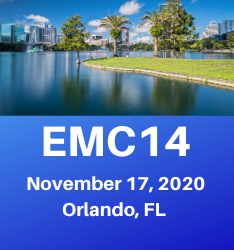|
|
|
|
|
Consumer Advocates Ask New York PSC To Apply COVID Customer Relief Efforts To ESCO Service, Fees
The following story is brought free of charge to readers by EC Infosystems, the exclusive EDI provider of EnergyChoiceMatters.com
UtiliSave, L.L.C., a utility auditing consultant, and the Public Utility Law Project of New York filed separate comments at the New York PSC concerning customer relief measures related to COVID-19, and both implicated ESCO service in their responses
UtiliSave, which as exclusively first reported by EnergyChoiceMatters.com (see story here) previously filed a petition for declaratory ruling seeking affirmation that ESCOs may not pass-through ZEC (nuclear) costs to customers on fixed rate contracts unless, among other things, the customer disclosure statement indicated the potential of an exercise of a change-in-law clause that would result in a revised rate, has now raised a similar issue in its COVID comments
Addressing a question from the PSC regarding whether collections for clean energy programs should be modified, UtiliSave said that it supports the suspension of the collection of such fees from customers during the pandemic.
However, UtiliSave further said, "Some programs, such as the Zero Emissions Credit and Renewable Energy Credit programs, collect funding directly from utilities and ESCOs, and therefore would continue to be funded even if line-item charges on ratepayers’ invoices were waived."
UtiliSave also sought relief from ESCO late payment fees.
"UtiliSave believes that late payment fees charged by utilities or other service providers like ESCOs, if not prohibited, should be waived upon an application from the ratepayer certifying that they are experiencing economic difficulty. Such relief should be retroactive to at least from the signing of the Shutdown Order and run until the Commission has determined that the economic impact of the pandemic has abated. Such fees are punitive in nature; intended to cajole ratepayers into paying invoices on time on pain of bearing additional costs if they fail to do so. While the additional leverage such fees grant utilities and ESCOs during normal operating periods serves as a deterrent to enforce payment obligations, during emergencies like the Covid-19 pandemic where the ability of ratepayers to make payments, let alone timely payments, has been drastically eroded and missed payments are often a result of inability rather than refusal, they serve only to 'kick a man while he’s down'," UtiliSave said
"The shared goal of ratepayers, utilities, and ESCOs is to recover from this economic disaster. Late fees do not make up a significant amount of utility or ESCO income and their loss could be borne by these companies, while for ratepayers, especially small 'mass market' ratepayers and non-for-profit organizations or charities, would appreciate considerable relief as they work to become current with their providers. At the same time, the Commission could provide protections for utilities and ESCOs so as to minimize the impact of prohibiting late fees, such as by requiring an application for the waiver of late fees, and limiting the periods for which late fees can be sought. Such a waiver could be granted only for invoices following the Shutdown Order for example, and perhaps last for an appropriate period before requiring renewal, giving certainty to utilities and ESCOs that such measures are temporary while also providing certainty to ratepayers that they will not be unduly penalized while Covid-19 remains a major concern," UtiliSave said
UtiliSave also sought to ensure customer rate changes and/or switches are completed in a timely manner
"Delays in executing a customer’s request can frustrate the customer’s purposes in switching rates to begin with. Requiring utilities to complete any rate switch request, or to charge customers as if a rate switch had been made when they are able to do so, would provide immediate relief to these ratepayers without unduly prejudicing utilities or ESCOs, or putting their employees in harm’s way," UtiliSave said
"Obviously, any decisions reached by the Commission will need to balance the interests of utilities and ESCOs with that of different classes of ratepayers and other interested parties. This balancing of interests should take into account that both regulated utilities and ESCOs are private companies, having taken on the risks associated with entrepreneurship, including changes to consumer demand and decreased revenue as a result. Moreover, while utilities have additional protections afforded to them as a result of their regulated status, ESCOs bear much less regulatory burden, and concomitantly should be afforded significantly less protections. In any calculation, as a consumer protection agency, impacts on the ratepayers should be the primary concern to the Commission," UtiliSave said
Separately, PULP said in its comments that, "PULP is incredibly concerned that recent action by Energy Service Companies ('ESCOs') may cause harm to customers already harmed by COVID-19. The National Energy Marketers Association ('NEM') has spoken out against Consolidated Edison New York ('ConEd') and their decision to reduce the cost of electricity to assist residents of New York City during this time.90 While appreciative of the DPS’ decision to prevent ESCOs from participating in door-to-door marketing as a way to 'stop the spread,' PULP believes that the ESCOs’ attempt once again to fight to charge prices in excess of default utility pricing should be denied for Con Edison’s territory and all other utilities’ service territories for mass market customers. PULP also believes that additional protections must be put in place during this unprecedented public health and economic crisis to prevent predatory ESCOs from further harming utility customers."
PULP included in its comments a, "broader review of rate and financial aspects that should be considered in light of the COVID-19 health pandemic," without further citing relief specific to ESCOs
Case 20-M-0266
ADVERTISEMENT Copyright 2010-20 Energy Choice Matters. If you wish to share this story, please
email or post the website link; unauthorized copying, retransmission, or republication
prohibited.
Group Suggests ESCOs Be Required To Continue To Fund Public Policies, But Be Prohibited From Charging Customers Line Item For Costs During Pandemic
July 10, 2020
Email This Story
Copyright 2010-20 EnergyChoiceMatters.com
Reporting by Paul Ring • ring@energychoicematters.com
NEW Jobs on RetailEnergyJobs.com:
• NEW! --
Director - Distributed Generation, Demand Response, & Market Participation -- Houston
• NEW! --
Retail Energy Account Executive -- Houston
• NEW! --
Business Development Manager
|
|
|
|









